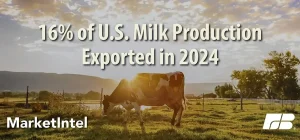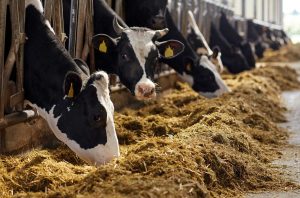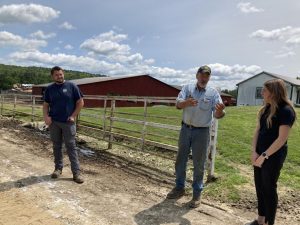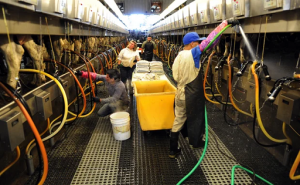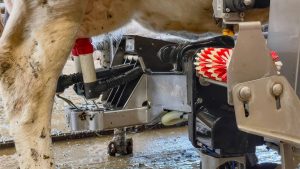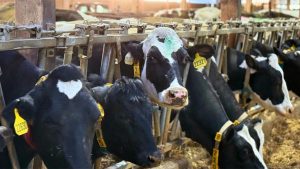
It’s a multitiered approach, and the Northeast Dairy Task Force says it will take collaboration.
“We know especially younger families, just kind of putting ourselves in their shoes, what that would feel like.,” said Paul Stecker, a former Horizon Organic dairy farmer.
Stecker sold his herd before Horizon pulled the plug on the region’s organic dairy producers. He simply says he feels like he dodged a bullet.
“We were happy for ourselves but very sad for our farm families,” said Stecker.
Stecker says he hopes for the sake of the farmers there is a solution for the dropped farms.
In a letter to the USDA, the 27 organizations on the Northeast Dairy Task Force have an assortment of solutions.
“Well, we hear there is still anxiety about what is going to happen with the farms,” said Diane Bothfeld with the Vermont Agency of Agriculture.
Bothfeld says recommendations include:
- Find ways to explore new markets and get their milk into places like educational institutions or hospitals.
- Expand or upgrade processing facilities in the Northeast or possibly create new ones.
- Implement farm viability programs to help farmers in need of things like business assistance.
- Upgrade infrastructure and focus on distribution grants for companies hauling.
- Focus on federal response through enforcement of organic standards nationwide, closing gaps in regulations.
“I am hopeful, especially with six more months on the Horizon contracts, that we will be able to get there,” said Bothfeld.
The co-founder of Stonyfield, involved in the USDA recommendations, believes the solution is multilayered.
“We all have a role to play in keeping these farms alive, and we believe what will happen if this is successful. We will have a much more stable, engaged marketplace, consumers, producers, restaurateurs, the farms will be able to just breathe a little bit,” said Gary Hirshberg, with the Northeast Organic Family Farm Partnership.
The goal is to keep all farms that want to continue offering organic dairy. But solutions also need to work for the farms while they also weigh their options.
“Part of the message to the farmers is make yourself as attractive as a farmer as you can to these buyers,” said Bothfeld.
Bothfeld maintains organic dairy remains an important part of the economic ecosystem of the state and region. But Horizon’s decision has shed new light on the vulnerabilities to the Northeast market.
“The impact to the farms can be devastating, but the fact that it sharpened the focus is in a positive means to move the whole industry forward,” said Bothfeld.
Stecker says he hopes the farmers will find a place for their product. As a farmer, he understands it isn’t something you can just walk away from.
“Working with the land and the animals and you get so attached, it’s really who you are and who you become and how you live,” said Stecker.
Smaller producers are stepping in to pick up organic milk, so is Organic Valley.
And there’s a new venture with Stonyfield that looks to create a partnership with stores, but the responsibility to buy the product is on you.
The Task Force is still waiting on a response from the USDA.




